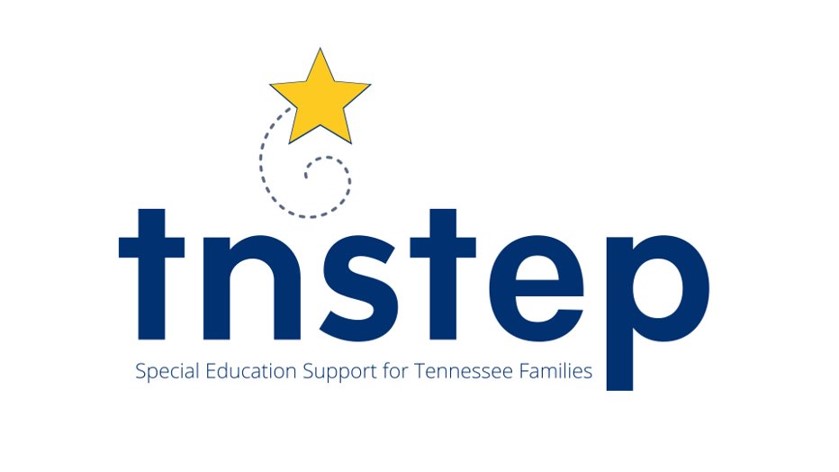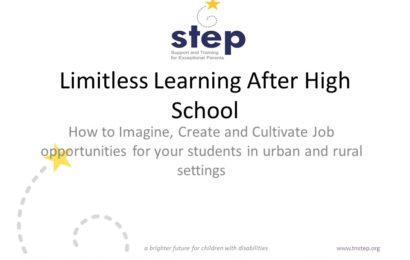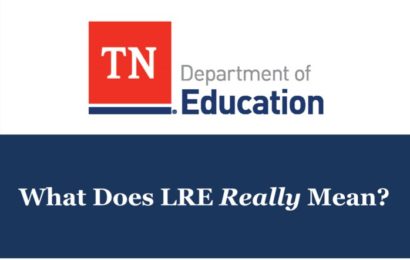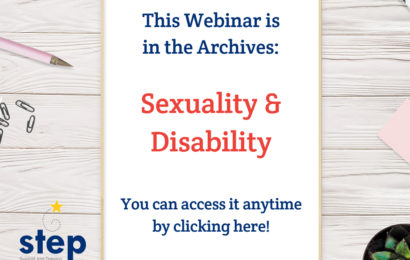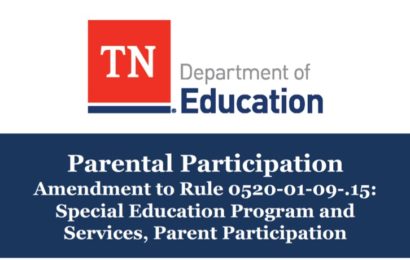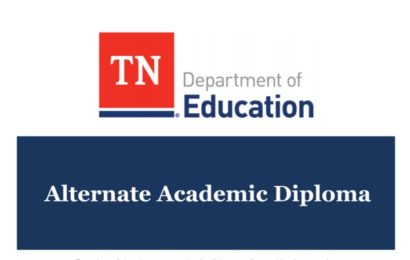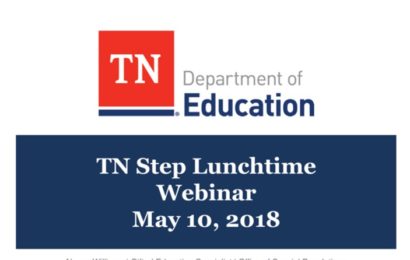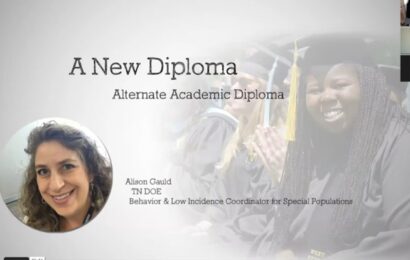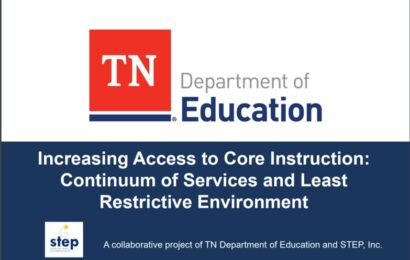Showing 51-60 of 84 results
Limitless Learning After High School: How to imagine, create and cultivate job opportunities for your students in urban and rural settings – TNSTEP’s Lunchtime Leaders Webinar
This webinar is designed for families, caregivers, and educators of children and youth with disabilities to gain an understanding of how to create and cultivate programs to assist students with disabilities in finding meaningful employment after high school. Participants will hear firsthand how each of these programs has had a…
What Does Least Restrictive Environment (LRE) Really Mean? TNSTEP’s Lunchtime Leaders Webinar
The Least Restrictive Environment, LRE, is an important charge of the IEP team. But what exactly is LRE and how do we know what to choose? This webinar will explore the intent of LRE and critical questions for IEP teams to consider to confidently determine a student’s LRE. Presenter: Alison…
Sexuality and Disability – TNSTEP’s Lunchtime Leaders Webinar
Sexual health is an important part of growing up. However, it can be a very overwhelming and confusing time. This webinar will give you a synopsis of the SPAN Parent Advocacy Network’s four-part series on Sexuality and Disability. Part 1 – Building Healthy Relationships Objective: 1) Healthy relationships lie in…
Tennessee Dept. of Education Rule Change on Draft IEPs – TNSTEP’s Lunchtime Leaders Webinar
The state board of education recently passed an amendment to the Special Education Programs and Services Parent Participation Rule (Rule 0520-01-09-.15), which is anticipated to go into effect on March 12, 2019. The new rule requires parents to receive a copy of a draft Individualized Education Program (IEP) at least…
Tennessee Diploma Types and Post Secondary Options – TNSTEP’s Lunchtime Leaders Webinar
On January 26, 2018, the State Board of Education approved the addition of the Alternate Academic Diploma (AAD) as a diploma option for Tennessee students with disabilities who participate in the alternate assessments. This new diploma will count toward the district graduation rate and will be implemented beginning in the…
Tennessee Council on Developmental Disabilities – What Families Should Know – TNSTEP’s Lunchtime Leaders Webinar
The Council on Developmental Disabilities is a leader in improving policies and practices that affect the lives of Tennesseans with developmental disabilities. The Council works with offices of state government, private entities, policymakers, and the public to promote best practices in the field of disability services. The 21-member Council, comprised…
Intellectually Gifted Students – TNSTEP’s Lunchtime Leaders Webinar
“Intellectually Gifted” means a child whose intellectual abilities, creativity, and potential for achievement are so outstanding that the child’s needs exceed differentiated general education programming, adversely affect educational performance, and require specifically designed instruction or support services. Children from all populations (e.g., all ethnic groups, English Learners, all economic strata,…
Preparing and Engaging Youth – Building Confidence to Advocate for Yourself – TNSTEP’s Lunchtime Leaders Webinar
Teach participants how to empower students so that they can build the confidence needed to advocate for themselves. Provide examples of how to engage students by allowing them to learn about their learning styles, strengths, and weaknesses and how to ask for help when needed while still maintaining a maximum…
Tennessee Dept. of Education Alternate Academic Diploma Overview – TNSTEP’s Lunchtime Leaders Webinar
An Overview of the proposed policy for the alternate academic diploma by the state ESSA plan. The Every Student Succeeds Act (ESSA) has made available to states a diploma option, which will be included in the graduation rate, for students assessed on the alternate assessment. In the Tennessee ESSA plan,…
Increasing Access to Core Instruction: Continuum of Services and Least Restrictive Environment (LRE) (SPDG)
Tennessee State Personnel Development Grant (SPDG) and TNSTEP have partnered to develop a new webinar series on increasing access to core instruction and all-encompassing opportunities for students with disabilities. A major area of emphasis of the State Personnel Development Grant is the work being done with general education teachers using…
